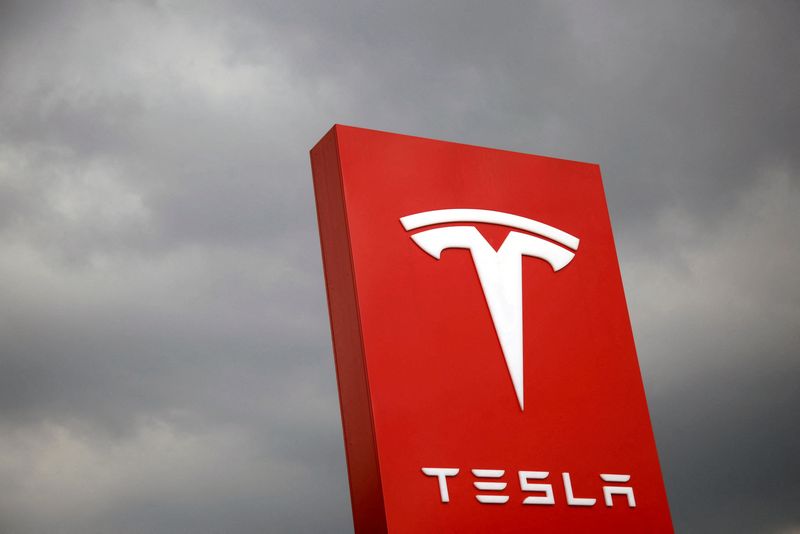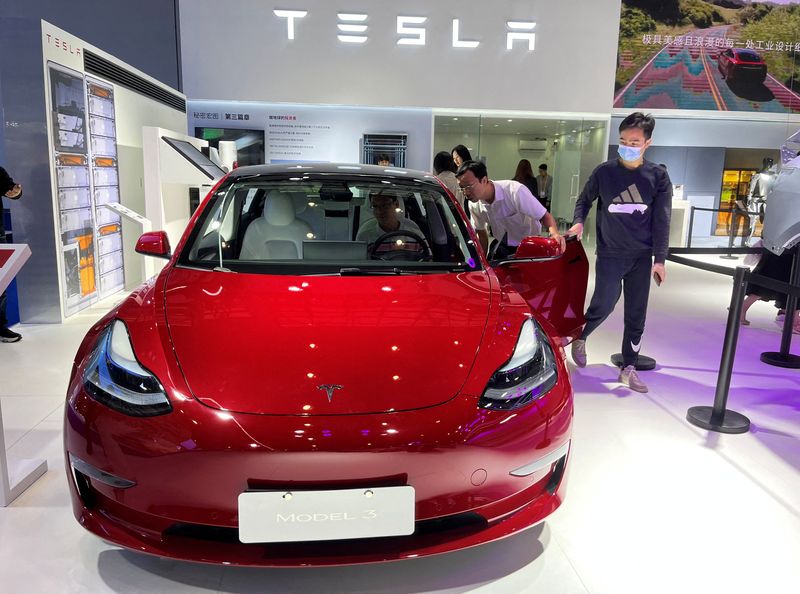By Aditya Soni and Akash Sriram
(Reuters) - Elon Musk's warning that high interest rates could sap electric-vehicle demand knocked shares of the sector on Thursday, with some analysts questioning if Tesla (NASDAQ:TSLA) can maintain the runaway growth that has for years set it apart from other automakers.
The world's most valuable automaker's stock closed down 9.3% at $220.11, erasing more than $70 billion in market value.
Rivals including Rivian (NASDAQ:RIVN) Automotive, Lucid Group (NASDAQ:LCID) and Fisker (NYSE:FSR) ended down between 4% and 5%, while legacy automakers such as Ford (NYSE:F) closed nearly 2% lower.
The comments marked a change in tone from Tesla CEO Musk, who said last year that his company was "recession-resilient".
The EV maker missed revenue estimates on Wednesday by the most in more than three years and Musk said it was impossible to maintain a 50% annual delivery growth rate.
"It didn't have the same zip. We await Tesla's earnings calls with a sense of excitement and suspense - and they usually deliver. Not Wednesday night," Canaccord Genuity analysts said.
The company is expected to cut prices further in the current quarter to meet its annual deliveries goal of 1.8 million vehicles, even after its gross margin contracted to 17.9% between July and September from 25.1% a year earlier.
"We continue to believe that Tesla is a car company, and that the competitive nature of the auto industry will make it difficult for any player to have a sustained profitability advantage," Bernstein analyst Toni Sacconaghi said.
Overall, 15 analysts cut their price targets on the stock, pushing the median view to $260, according to LSEG data.
The stock has nearly doubled in 2023 on investor optimism that the company will fare better than rivals in an uncertain economy and see a long-term boost from its self-driving efforts.

The stock trades at about 59 times its 12-month forward earnings estimates, compared with 6.3 times for Ford and General Motors (NYSE:GM)' 4.2.
"The current market valuation appears to rest on the specious assumption that the hundreds of EVs slated for launch by 2025 will all be flops. Tesla does not operate in a vacuum," said Craig Irwin, senior research analyst at Roth Capital.
